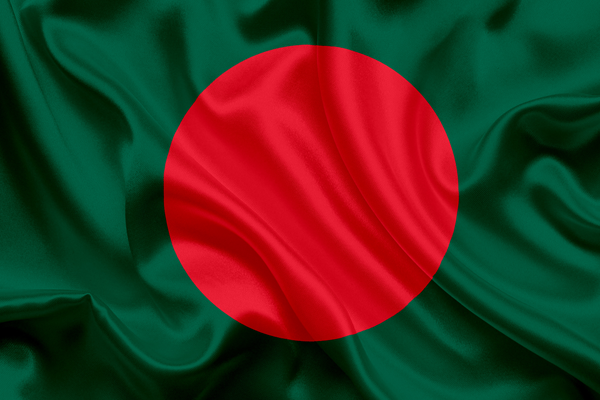
Aug 12, 2013 | News
The ICJ is calling for the immediate release of Adilur Rahman Khan, a prominent Supreme Court lawyer and human rights defender in Bangladesh.
Mr Khan is the Secretary of Odhikar, a Bangladeshi human rights organization that has documented human rights violations allegedly carried out by Bangladeshi security forces.
Plainclothes police officers arrested Mr Khan from his home on 10 August 2013 without an arrest warrant.
“Adilur Rahman Khan is being charged for the lawful exercise of the right to freedom of expression, so Bangladeshi authorities must immediately and unconditionally drop all charges against him and release him,” said Ben Schonveld, ICJ’s South Asia director. “Until the charges are dropped, he must be released on bail.”
Adilur Rahman Khan was charged on 11 August under section 57 of the Information and Communication Technology Act, 2006, for distorting information regarding a police operation on a Hefazat-e Islam rally in May this year.
Odhikar reported that 61 people had been killed in the police crackdown on the rally. The government denied any casualties.
He was not allowed to speak with his family or his lawyers until August 11, when a Magistrate’s Court refused bail and remanded him for a further five days of custodial interrogation.
On August 12, the High Court Division of the Supreme Court stayed the remand order, directing that Mr. Khan be sent back to jail, where he could be interrogated ‘at the gate of the prison.’
“Adilur Rahman Khan’s arrest is illustrative of a deeply worrying government strategy to muzzle and discredit the work of human rights defenders and distract attention from human rights violations,” added Schonveld. “The High Court’s stay of the remand order is a positive development. However, the Bangladesh government must uphold its obligations under domestic and international law to guarantee freedom of expression and allow human rights defenders to carry out their work.”
Article 19 of the International Covenant on Civil and Political Rights (ICCPR), to which Bangladesh is a party, guarantees ‘freedom to seek, receive and impart information and ideas of all kinds, regardless of frontiers, either orally, in writing or in print, in the form of art, or through any other media of his choice.’
The UN Basic Principles on the Role of Lawyers provide that lawyers must be allowed to carry out their work ‘without intimidation, hindrance, harassment or improper interference.’
Further, lawyers shall, in particular, have the right to take part in public discussions of matters concerning the law, administration of justice and the promotion and protection of human rights.
In addition, the UN Declaration on Human Rights Defenders clarifies that States must create an enabling environment for human rights defenders and take all necessary measures to protect human rights defenders ‘against any violence, threats, retaliation, de facto or de jure adverse discrimination, pressure or any other arbitrary action as a consequence of his or her legitimate exercise of his or her rights.’
CONTACT:
Ben Schonveld, ICJ South Asia Director (Kathmandu), t: +977 14432651; email: ben.schonveld(a)icj.org
Sam Zarifi, ICJ Asia-Pacific Director, (Bangkok), t: +66 807819002; email: sam.zarifi(a)icj.org
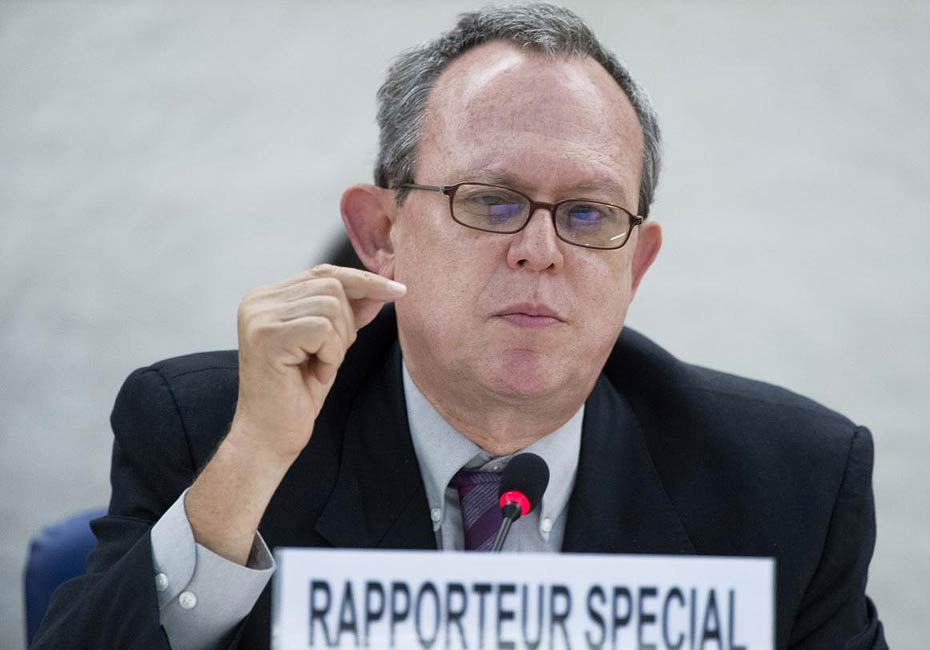
Aug 5, 2013 | News
La CIJ condena acciones de intimidación en contra del Relator de las Naciones Unidas sobre Libertad de Expresión y del Instituto Centroamericano de Estudios para la Democracia Social (DEMOS).
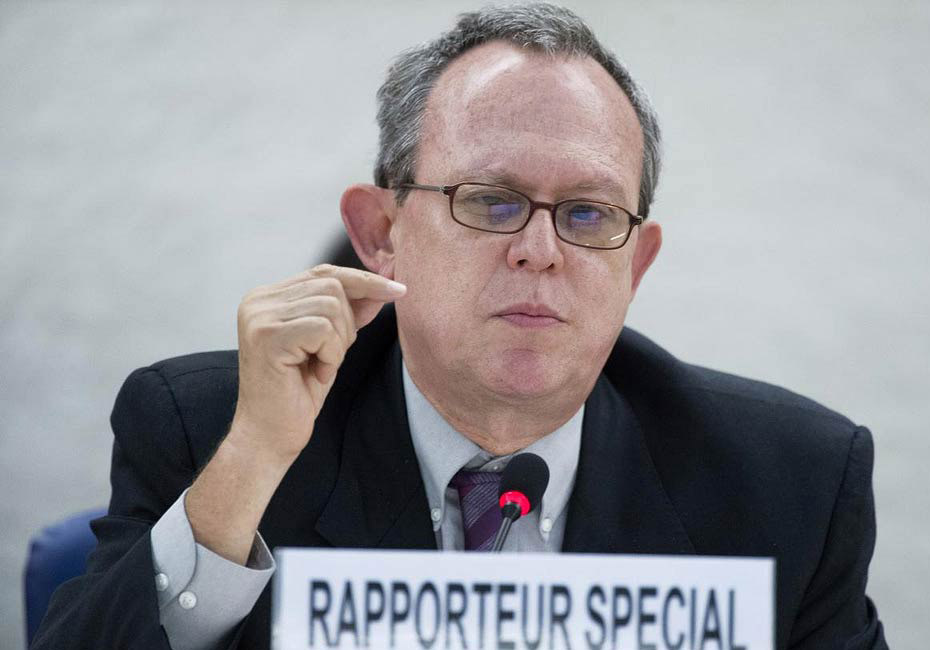
Aug 5, 2013 | Artículos, Noticias
La CIJ condena acciones de intimidación en contra del Relator de las Naciones Unidas sobre Libertad de Expresión y del Instituto Centroamericano de Estudios para la Democracia Social (DEMOS).
El día jueves 1 de agosto, personas no identificadas ingresaron ilegalmente a las oficinas del Instituto DEMOS y a las oficinas del Relator Especial sobre Libertad de Expresión de la Organización de las Naciones Unidas, Sr. Frank Larue.
Un día antes, en su columna de opinión el Sr. Ricardo Méndez-Ruiz, Director de la Fundación contra el Terrorismo, escribió en contra del Sr. Larue, acusándolo falsamente de diferentes hechos criminales, supuestamente cometidos por él durante el conflicto armado interno.
Desde hace ya varios meses, en su calidad de Director de la Fundación contra el Terrorismo, el Sr. Méndez-Ruiz ha asumido una posición intimidatoria en contra de personas, organizaciones, defensores y defensoras de derechos humanos, misiones diplomáticas y dirigentes comunitarios, tratando así de afectar el trabajo que estas personas o instituciones realizan en favor de la justicia y el respeto de los derechos humanos.
La Fundación contra el Terrorismo, representada por el Sr. Ricardo Méndez-Ruiz anunció días atrás, diferentes acciones en contra de organizaciones no gubernamentales.
Es así como, en el mes de marzo del presente año, después de dicho anuncio, el Director de la Organización Centro para la Acción Legal Ambiental y Social de Guatemala (CALAS) y su asesor legal, sufrieron amenazas y serias intimidaciones.
Posteriormente, la organización Centro de Análisis Forense y Ciencias Aplicadas (CAFCA) fue acusada en el mes de julio de diferentes falsedades en una publicación anónima, claramente con el objeto de intimidar al personal que lleva a cabo acciones a favor de las víctimas del conflicto armado interno.
Por último, el 1 de agosto, las oficinas del Instituto DEMOS y del Relator Especial sobre Libertad de Expresión, también sufrieron un ingreso ilegal y sustracción de documentos.
La Comisión Internacional de Juristas, hondamente preocupada por estas amenazas, pide a las autoridades correspondientes del Ministerio de Gobernación y del Ministerio Público, que lleven a cabo una investigación rigurosa, para determinar quién está detrás de todos estos hechos violentos en contra de defensores y defensoras de derechos humanos.
Dicha investigación debería extenderse en contra de la Fundación contra el Terrorismo y su Director Sr. Méndez-Ruiz, con el objeto de identificar posibles vínculos con los hechos mencionados, sobre todo tomando en cuenta el contenido de múltiples publicaciones realizadas por la Fundación contra el Terrorismo en los últimos meses.
Asimismo, pide al Estado de Guatemala que brinde garantías y protección a defensores y defensoras de derechos humanos, organizaciones no gubernamentales, instituciones y dirigentes comunitarios que llevan a cabo actividades a favor del respeto de los derechos humanos.
Dichas garantías deberían extenderse al trabajo que realiza el Sr. Relator Especial sobre Libertad de Expresión de la Organización de las Naciones Unidas Sr. Frank Larue.
Foto: UN /Jean-Marc Ferré
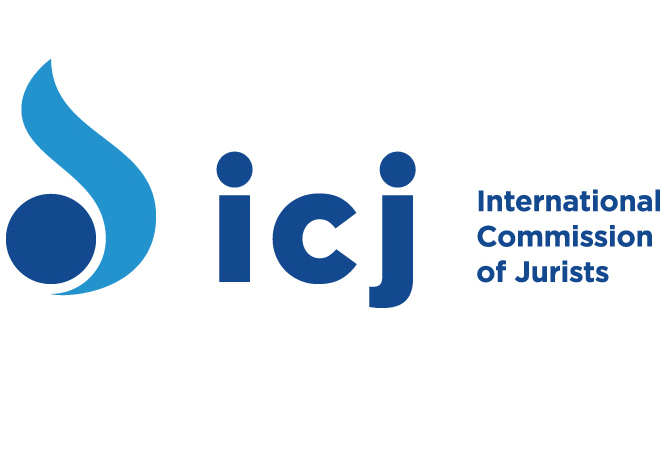
Jul 29, 2013 | News
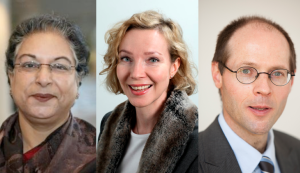 The ICJ is delighted to announce that three new Commissioners were elected in July: Ms Hina Jilani (Pakistan), Dr Jarna Petman (Finland) and Professor Olivier de Schutter (Belgium).
The ICJ is delighted to announce that three new Commissioners were elected in July: Ms Hina Jilani (Pakistan), Dr Jarna Petman (Finland) and Professor Olivier de Schutter (Belgium).
The new members of the ICJ Commission, who now begin five-year terms, are:
Ms Hina Jilani (Pakistan) is a human rights activist and an advocate of the Supreme Court of Pakistan. With her sister (and ICJ Honorary Member) Asma Jahangir, in 1980 she co-founded Pakistan’s first all-female legal aid practice, AGHS Legal Aid Cell (ALAC) in Lahore.
Dr Jarna Petman (Finland) is a Senior Lecturer (professor ad interim) in International Law at the University of Helsinki, and is Deputy Director of the University’s Erik Castrén Institute of International Law and Human Rights. She is a Member of the European Committee of Social Rights of the Council of Europe, having been appointed to this position in 2009 for a five-year term.
Professor Olivier de Schutter (Belgium) is a legal academic and human rights expert. He was appointed UN Special Rapporteur on the Right to Food by the Human Rights Council in May 2008 and continues to serve in this position. Professor de Schutter teaches international human rights law, European Union law and legal theory at the Université Catholique de Louvain in Belgium, as well as at the College of Europe.
In the second of three ballots taking place in 2013, July also saw the re-election of Justice Michèle Rivet as Vice-President and the re-appointment of Ms Imrana Jalal and Ms Karinna Moskalanko to the Executive Committee.
Biographies for all our Commissioners can be found here
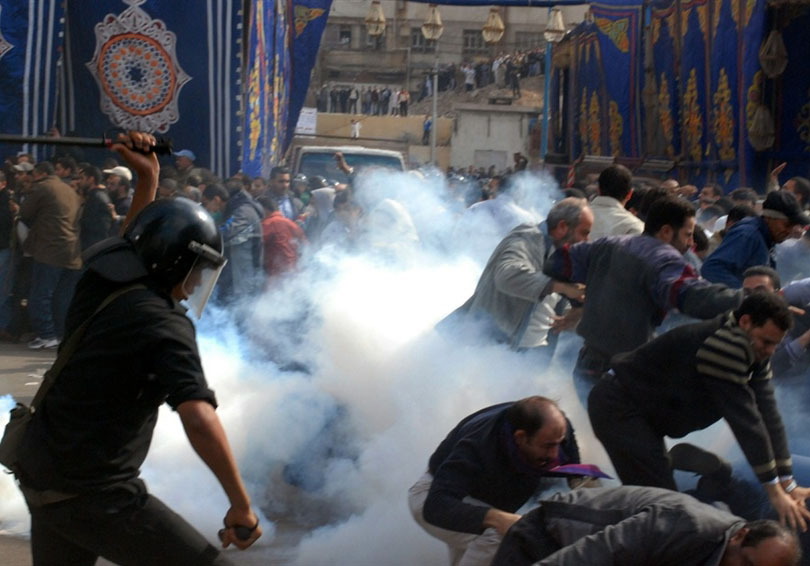
Jul 29, 2013 | News
The ICJ today called on the Egyptian authorities to put an end to its use of unlawful and lethal force as it pursues an excessive and violent crackdown on protesters.
The ICJ also called on the authorities to promptly, impartially and fully investigate the allegedly unlawful killings of more than 80 people who were reportedly fired on by security forces in a rally in Cairo in support of ousted President Mohamed Morsi on 27 July.
Large-scale rallies were held when the head of the armed forces, General Abdel Fattah El Sisi, called on citizens to grant the military a mandate to fight “terrorism and violence”.
The ICJ is also concerned at reports indicating that the government may be poised to grant arrest powers to the Egyptian Armed Forces.
“The Egyptian authorities must promptly, fully, and impartially investigate the actions of the security of forces, involving alleged unlawful killings and ill-treatment of protesters with a view to holding accountable those responsible,” said Wilder Tayler, ICJ Secretary General. “The authorities must also ensure that, in accordance with international law and standards, security officers exercise force only in a proportionate manner and may use lethal force only when strictly unavoidable to protect lives.”
Since the unlawful seizure of power by the Army and the ouster of President Morsi, more than 130 persons said to be supporters of the former President have reportedly been killed as a result of the unlawful and disproportionate use of force by security forces, including firing with live ammunition.
The ICJ is concerned that the ongoing attacks on protesters, and the impunity that continues to prevail over them, will further contribute to the deterioration of the rule of law and the human rights situation in Egypt.
To prevent such deterioration, the Egyptian Army must carry out its security functions so as to protect the enjoyment and legitimate exercise of human rights by all. It must also ensure a quick and steady transition of power to a legally constituted civilian authority.
Contact:
Said Benarbia, ICJ Senior Legal Adviser of the Middle East and North Africa Programme, tel: 41 22 979 38 17, e-mail: said.benarbia(a)icj.org
Photo by Samaa TV










